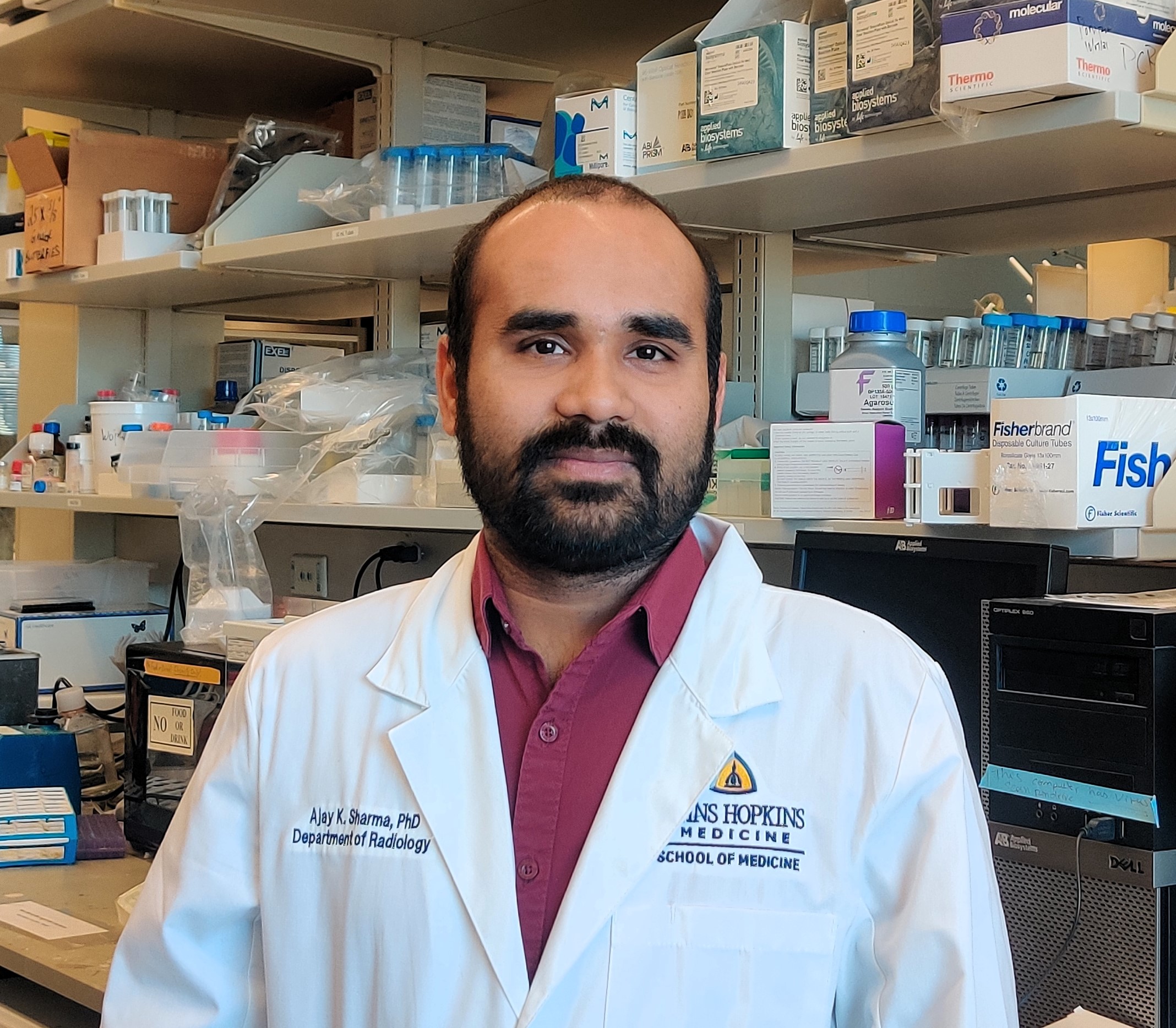Project title: Development of EphA2-Targeted Molecular Radiotheranostics for Lung Neuroendocrine Tumors
Ajay Kumar Sharma, PhD Johns Hopkins University

- Status: Active
- Year(s): 2024
- Grant Type: Collaborative
- Research Type: Clinical
- Primary Tumor Site: Lung
- Area of Inquiry: Theranostics, Imaging, PET, PRRT
- Article/Video: Click Here
Description
What critical neuroendocrine cancer problem/question will your project try to answer?
This research aims to improve diagnostic accuracy and treatment efficacy for neuroendocrine tumors (NETs), specifically lung NETs that are resistant to standard therapies. The research focuses on developing and utilizing the dual-function peptide-based agent AJ210 for precise imaging and targeted radiotherapy.
Why is this important?
EphA2 (Ephrin type-A receptor 2) is a receptor tyrosine kinase that is overexpressed in various cancers and is a promising target for molecular radiotherapy. Despite the potential of EphA2-targeted therapies, there is still a lack of EphA2-targeted theranostic agents for lung NETs. AJ210, is a peptide-based agent that targets the EphA2 receptor. AJ210’s ability to combine high-precision imaging with targeted therapy could revolutionize care by improving detection, delivering personalized treatment, and addressing the unique challenges of NETs lacking targeted treatments. This theranostic approach has the potential to significantly enhance patient outcomes.
What will the researchers do?
This research project involves the further development and assessment of the peptide-based agent AJ210. The agent employs Gallium-68 for precise imaging and Actinium-225 for targeted radiotherapy. This research involves radiopharmaceutical development, peptide optimization, and preclinical testing to demonstrate its potential in diagnosing and treating resistant lung NETs.
How might this improve treatment of neuroendocrine cancer?
This research could offer a breakthrough in diagnosing and treating lung NETs by combining imaging and therapy into a single platform. The dual functionality of AJ210 could enable earlier, more accurate diagnosis and effective treatment for patients resistant to conventional therapies, improving both survival and quality of life.
Additional Details
- City: Baltimore
- State: Maryland
- Country: United States
- Grant Duration: 2 years
- Grant Partner: Education and Research Foundation
DISCLAIMER
NETRF funds laboratory research to understand the development of neuroendocrine tumors and translational research to explore new concepts in treatment. Research grant descriptions and research updates from NETRF are not intended to serve as medical advice. It can take years for research discoveries to be fully validated and approved for patient care. Always consult your health care providers about your treatment options.
